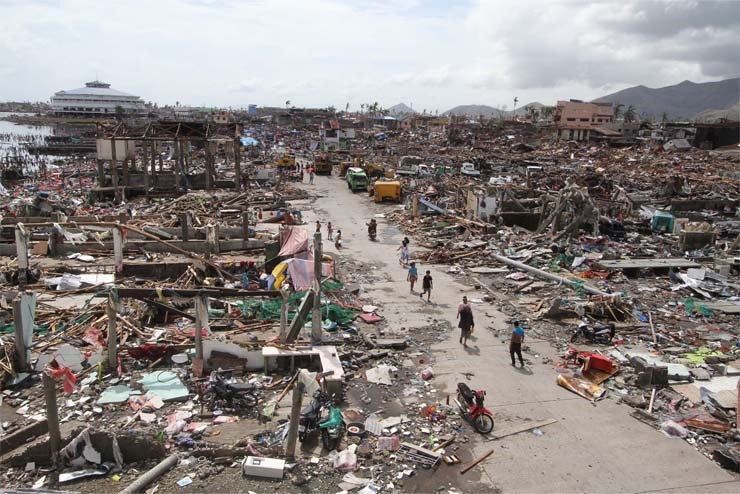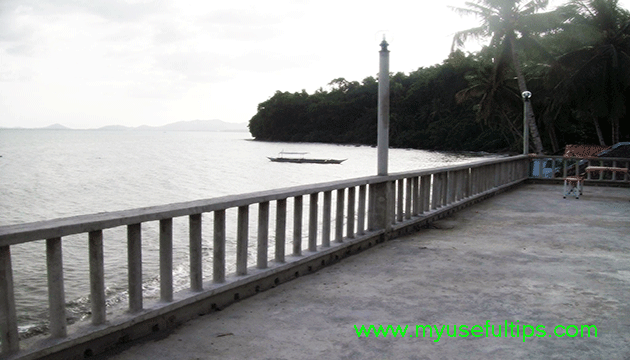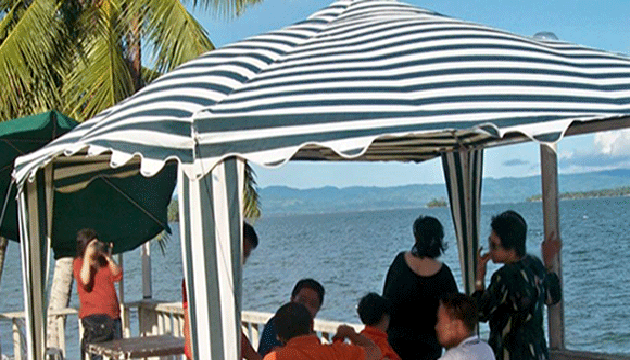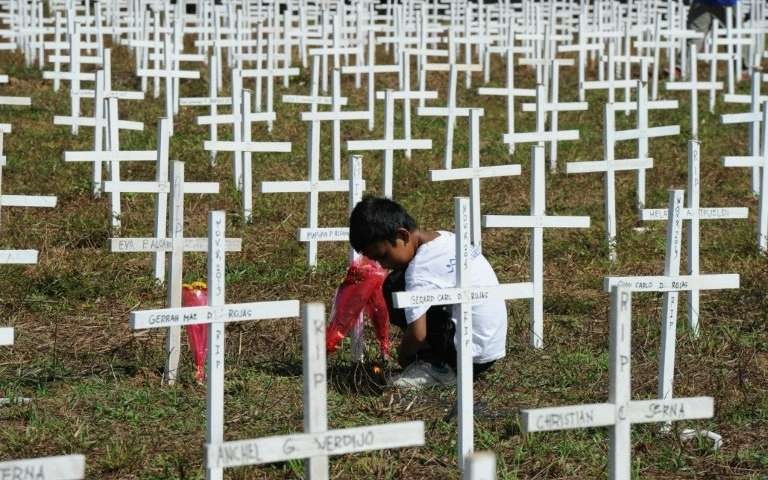7th Anniversary of Super Typhoon Yolanda: What Have We Learned?
November 8, 2020 marked the 7th Anniversary of “Yolanda” (with an international name Haiyan), the powerful and devastating typhoon that badly struck Region 8 (Samar and Leyte), particularly Tacloban City.
I remember that day we were frantically monitoring news reports about the said typhoon but there was no way to get a complete scenario, until the following day when tri-media showed harrowing photos of the place. One of my sisters’ family is based in Tacloban City. We wanted to know if they were safe but there was no way we’re able to contact them since there was little communication (mobile and landline phone coverage were cut off) and the only recourse at that time was to rely on intermittent news reports via television on the overall situation of the city of the typhoon’s aftermath.
The ravaging winds and the vicious storm surge that was estimated to reach as high as 5 to 6 meters or about 16 to 20 feet high (based on calculations of Deltares, a research institute) left tens of thousands homeless, more than 6 thousand people killed, more than 1,000 missing, and over 28,000 injured, and several properties destroyed. Based on accounts, Yolanda was the strongest typhoon ever recorded in recent history.

Most of the victims and survivors have still vivid painful memories of what happened on how the 235kph winds and 275kph gusts lashed the said places, leaving behind a trail of death and destruction. The sight and memories of their loved ones being carried away into the swirling waters and hard-earned properties being wiped out by the storm surge made it more agonizing and difficult to get over with for some of the victims and survivors.
While my sister’s house in Tacloban wasn’t badly hit by the storm, their weekend staycation beach house located in a place in Samar (where Tacloban Airport can be viewed from afar) was completely washed into the sea, just leaving its concrete stairs which served as the landmark after the wrath. All of the neighboring seafront structures have all been swept away and torn apart. Fortunately, their family was not in said beach house when the typhoon hit the place. It was so strong that even the newly constructed concrete bridgeway facing the sea and the plants and trees standing there for years (jack fruit, coconut and palm trees as well as the different kinds of orchids hanging on the trees) were uprooted by the tsunami like mighty waves and were washed away into the sea due to the storm surge.


My kins were fortunate to survive the deluge which we were all very grateful to God. It was a blessing in disguise that they did not push through with the plan to spend a day in one of the hotels the night before the typhoon as all of those who stayed in some of the hotels witnessed a more dreadful experience. Based on accounts, everyone who stayed in one of the hotels perished because the hotel itself was completely washed away.
Months and years after the typhoon, the residents of the place were able to accept and cope with the unfortunate fate they’ve suffered. They simply had to heal and rebuild their wounded lives, reconstruct their homes and rely on their own feet from whatever available resources in order to move on and re-start for a better tomorrow. It was good that some of them were able to save for the “rainy days”, enough for the needed reconstruction and to make use of what was left. Some didn’t wait for funding assistance from certain agencies, they just have to do it on their own. They were just the fortunate ones but what about the rest who encountered catastrophic tales of the devastating storm.
As the reality of the survivors’ experiences have been unfolded once again during the 7th year anniversary of the super typhoon, it became obvious that the wrath of “Yolanda” was something that all of us can learn. Have we truly learned some lessons from Typhoon Yolanda? Definitely, some of us noted some relevant observations that would aid all stakeholders in such times of disaster.
First, Government agency responsible for weather forecasts should warn the people with complete descriptions about the deluge and its impact. For instance, the communication about storm surge could have been visually described, imparted better and could have been properly coordinated with the local authorities so that the people could have been advised and forcedly evacuated from their homes to safer grounds. The people of Region 8 are fully acquainted and are used to experiencing strong storms since the place is often visited by typhoons, except by a storm surge. It was the unexpected raging tsunami-like waves that killed most of those who perished.
Second, Residents of affected city or province should seriously heed warnings of the Government. They should always be prepared to protect themselves in all kinds of emergencies because even Government authorities, in reality, would not be able to save them during the typhoon as they would take care of themselves and their own families as well. Actually, there were those who heeded warnings and they were brought to evacuation centers in advance before the typhoon landed but they too unfortunately didn’t make it because the evacuation centers were not the right place and the response was inadequate to mitigate and protect them from the disaster.
Third, Local Governments should appropriate budget for rescue equipment and fully furnished evacuation centers built on safer and higher grounds for the purpose.
Fourth, Financial assistance (e.g. donations after the typhoon, etc.) from various foreign Governments and humanitarian organizations should have been disclosed to the public as to where the money was spent. The public should have been informed and updated regularly with relevant information by the Government on completed projects, implementation timetables and the like to avoid speculations of deception and corruption.
The above-mentioned are just some observations and lessons learned from the said typhoon, I will no longer highlight the logistical requirements during calamities (basic needs such as food, water, batteries, etc.) because that’s the logical thing to do. But some people in the provinces live a hand to mouth existence. They don’t have enough food or money, or in worst cases. they have nothing at all. In the event of a disaster, we have to be self-reliant, we cannot always rely on others. In times of disasters, everyone is anxious on how they themselves can be saved and survived, no time to think of their neighbors. It’s like everyone is in a survival of the fittest, struggle for existence mode.
While Typhoon Yolanda opened our eyes to certain fields of concern, it made us also reflect on what is more important in life. Those who are fortunate enough to be blessed with so much in life should be able to understand and generous enough of what they have to those who have been badly hit and are in dire need. Material things come and go, so with our possessions, jobs, etc. As they say, it is better not to worry about the things which have been lost but to be thankful always for all the wonderful blessings coming our way, and to be able to share it with others. The love of our family is always there. The wonderful times spent could ease the pain and for us let go of past challenges and let God do the rest, so we can be free in the end and be happy once again.
To my elder sister Rebecca and her late husband (Kuya Bebs who died 5 years after the typhoon, may he rest in peace in God’s Kingdom), we are so grateful for the kindness you have shared with us, for allowing us to stay in the beach house when we are on vacation. We do have sweet memories of the place. Our mother used to stay in the said place and she adored it. We know that Kuya Bebs made some improvements on the beach house and he loved the place. We hope and pray that you will be showered with God’s abundant graces and to keep you happy and healthy for many long years and your family as well.
Since November is the month devoted for the souls in purgatory, our thoughts and prayers for the families who lost their loved ones and still missing probably buried in the sea. May perpetual light shine upon the thousands souls of those who perished during the typhoon. May they all rest in peace. Amen.
